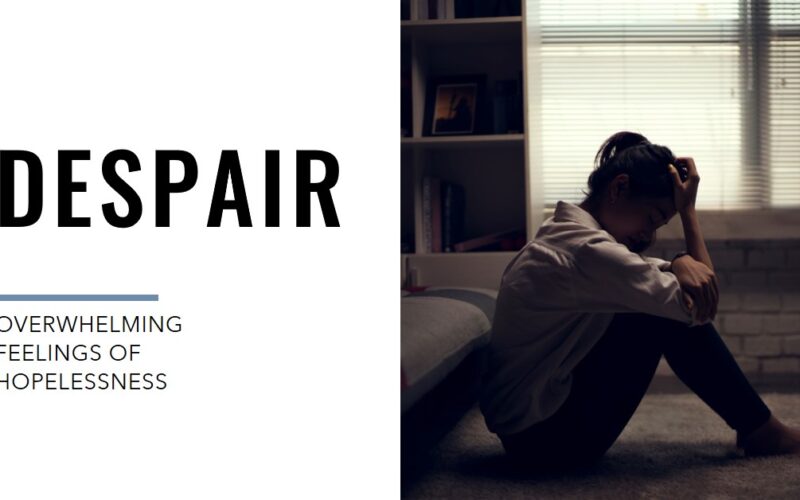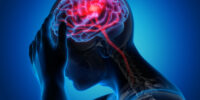The Link Between Depression And Thyroid Function

Thyroid hormones play a critical role in many bodily functions, including growth, development, metabolism, and mood. Abnormalities in thyroid function can lead to a variety of health issues, including depression.
This article aims to explore the link between depression and thyroid function, as well as the causes of thyroid imbalances and the available treatments.
The endocrine system is responsible for the production of hormones, which act as chemical messengers that regulate physiological processes throughout the body. Thyroid hormones are essential for proper growth, development, and metabolism.
This article will focus on the role of thyroid hormones in regulating mood and the link between thyroid function and depression. The causes of thyroid imbalance and the available treatments for both thyroid imbalance and depression will be discussed. Additionally, the impact of thyroid imbalance on depression will be addressed.
Understanding Thyroid Function
Investigation into the potential relationship between endocrine health and mental health has become increasingly important in recent years.
The thyroid gland, a small, butterfly-shaped organ located in the neck, is a key regulator of the body’s metabolism, energy levels, and hormone production.
In a healthy individual, the thyroid gland regulates the production of hormones, such as thyroxine and triiodothyronine, in response to the body’s needs.
When the thyroid produces insufficient amounts of hormones, this can lead to hypothyroidism, a condition associated with symptoms such as chronic fatigue, depression, and anxiety.
Conversely, an overactive thyroid can cause hyperthyroidism, which is linked to problems such as insomnia, anxiety, and panic attacks.
Given the role of the thyroid in regulating hormone production, it is not surprising that it has been linked to mental health.
Research has suggested that a significant portion of those with depression may have an underlying thyroid disorder.
This suggests that for certain individuals, depression may be a result of an underlying thyroid issue that has not been properly diagnosed.
It is therefore important to undertake comprehensive medical testing when diagnosing and managing conditions such as depression.
The Link Between Thyroid Function and Depression
A study of over 200 participants revealed that those with an underactive thyroid experienced a higher rate of depression than those with a normal thyroid level.
This correlation between thyroid function and depression has been further researched and replicated, with a growing body of evidence that suggests an association between thyroid hormones and depression.
It has been suggested that abnormal thyroid hormone levels can cause changes in neurotransmitter concentrations, thereby influencing a person’s mood.
Moreover, research has suggested an association between thyroid hormones and the cortisol response to stress, and has found that those with an underactive thyroid have impaired cortisol response.
This impaired cortisol response can contribute to an increased risk of depression, as cortisol is a hormone that is important for managing stress.
Taken together, these findings have led to the conclusion that there is a link between thyroid function and depression.
Causes of Thyroid Imbalance
Research suggests that an imbalance in thyroid hormones can be caused by a variety of factors, including:
- Autoimmune disorders
- Nutritional deficiencies
- Medication
Additionally, environmental toxins, and genetic predisposition can also contribute to an imbalance in thyroid hormones.
Autoimmune disorders, such as Hashimoto’s Thyroiditis, cause the body’s immune system to attack the thyroid, thus leading to a decrease in hormone production.
Nutritional deficiencies, such as iodine or selenium, may also reduce the thyroid’s ability to produce hormones.
Finally, the side effects of certain medications, like corticosteroids, can interfere with the thyroid’s ability to produce hormones.
Treatments for Thyroid Imbalance
The treatment of thyroid imbalance may vary and may include lifestyle modifications, medications, and supplementation with elements such as iodine or selenium. In general, lifestyle modifications include avoiding processed foods, eating a healthy diet rich in organic fruits and vegetables, avoiding food sensitivities, and exercising regularly.
Medication often includes the use of thyroid hormones, such as levothyroxine, to replace or supplement the hormones naturally produced by the thyroid. Supplementation with iodine and selenium may also be recommended to support the thyroid and its production of hormones.
In some cases, additional treatments may be recommended to help treat thyroid imbalance and its associated symptoms, such as depression. These additional treatments may include cognitive behavioral therapy, psychotherapy, stress reduction techniques, and nutritional support.
When depression is caused by thyroid imbalance, it is important to treat the underlying thyroid imbalance in order to reduce the symptoms of depression. In some cases, medication and lifestyle changes may be enough to restore a balance in hormones and help reduce symptoms of depression.
Treatments for Depression Related to Thyroid Imbalance
Treatment of depression related to thyroid imbalance requires a comprehensive approach that may involve lifestyle modifications, medications, psychotherapy, and nutritional support.
Lifestyle modifications may include engaging in regular physical activity, getting enough sleep, and reducing stress.
Medications such as antidepressants, mood stabilizers, and antipsychotics may be used to help regulate mood.
Psychotherapy can be used to address any underlying factors that are contributing to the depression and to help the patient develop coping mechanisms.
Lastly, nutritional support can help support thyroid function and improve overall health.
Nutrients such as omega-3 fatty acids, zinc, selenium, and iodine can be helpful.
Additionally, supplementing with a high-quality multivitamin can provide essential nutrients for proper functioning of the thyroid and other organs.
Proper nutrition and supplementation can help improve the mood and decrease the symptoms of depression related to thyroid imbalance.
Conclusion
Thyroid function plays a critical role in the physical and mental health of individuals. While the link between thyroid function and depression is not completely understood, it is clear that an imbalance can have a profound effect on mental health.
To ensure optimal physical and mental health, it is important to recognize the signs of an imbalance and seek treatment promptly. As the adage goes, “prevention is better than cure,” so it is important to be aware of the symptoms of a thyroid imbalance and take steps to reduce the risk.
With the right diagnosis and treatment, individuals can improve their physical and mental health and live vibrant, meaningful lives.









